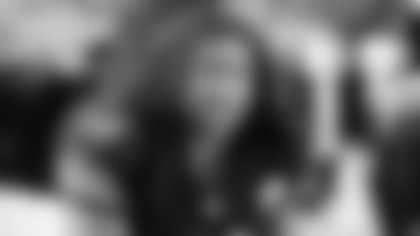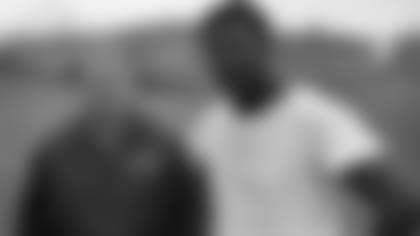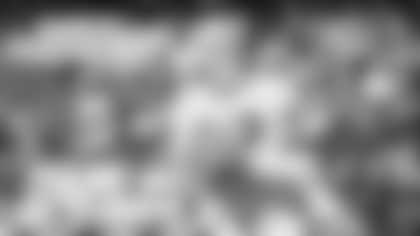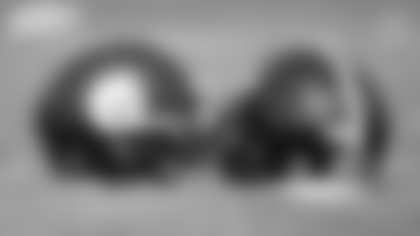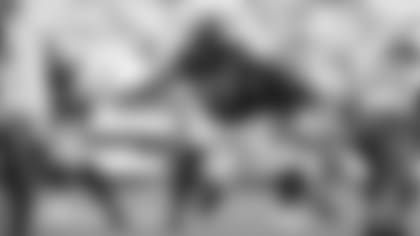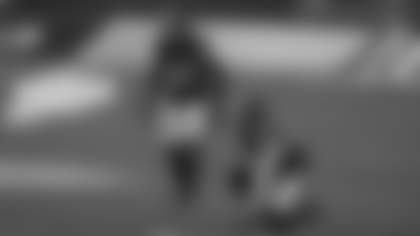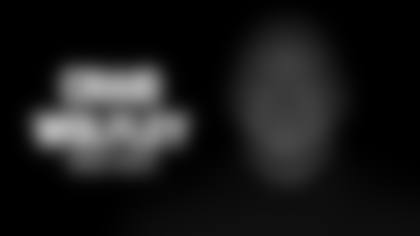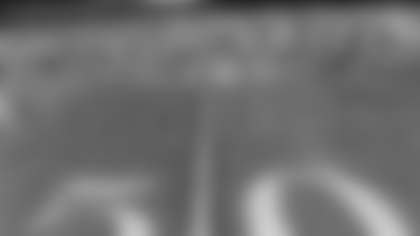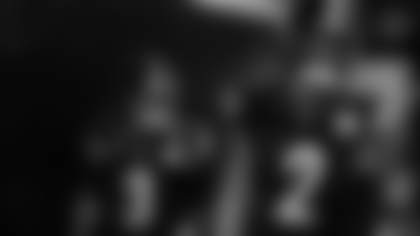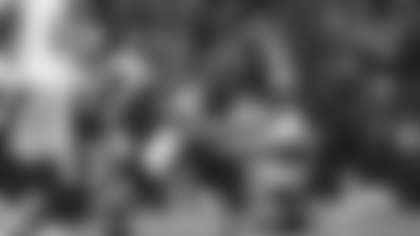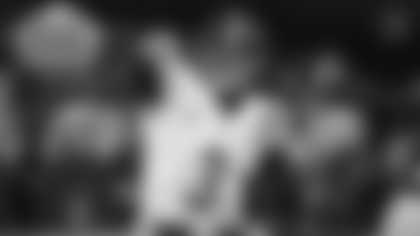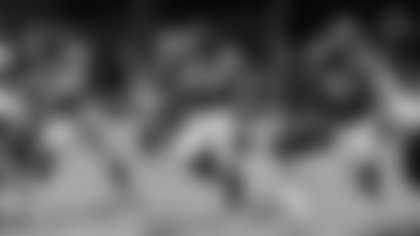It was Chuck Noll who first went to the medical community seeking some answers, some empirical evidence of concussion in athletes, and now a foundation bearing his name will further the cause.
The Chuck Noll Foundation for Brain Injury Research will support "continued research and education regarding brain injuries and treatment of sport related concussions." The Foundation was announced today, and the Steelers have pledged an initial contribution of $1 million to launch it.
"Most people don't realize that Pittsburgh is one of the leading centers for brain research and concussion treatment in the world," said Steelers President Art Rooney II. "To date, significant and important progress has been made in the area of treatment of concussions. And, we have access to so much more accurate information than ever to assess an athlete's progress in making the determination on when it is safe to return to play."
It is fitting that the Foundation is named after Chuck Noll and is headquartered in Pittsburgh, because Noll was a champion of the cause among the fraternity of NFL coaches and the Pittsburgh region is a leading center for the research and treatment of sports-related concussion injuries. In fact, the UPMC Concussion Clinic is just a couple of football fields away from the UPMC Rooney Sports Complex, the training facility for the Steelers and Pitt Panthers.
"Chuck Noll is the greatest man I ever met, and I'm grateful for the things I learned from him, on the field and off the field," said Merril Hoge. "He was a guy who always looked outside the box. Cognitive testing came about because he thought outside the box. Always challenging people or challenging subjects – what more can we do – and that's what this Foundation is about. Where can we get better? What things can we improve upon? How can we look outside the box to help this situation? I think he's an appropriate namesake from all levels, and then there's also the integrity aspect of it. That's a significant reason for his name to be on it, because that's also going to be one of the core principles of what we're doing – how we handle things and the integrity with which we do it."
According to its mission statement, "The Chuck Noll Foundation for Brain Injury Research shall provide funding for research projects relating to the prevention, diagnosis, and treatment of injuries of the brain occurring primarily in sports activities. The Foundation shall also engage in fundraising activities to allow for continuous grant making to support worthy research projects. The Foundation shall also partner with other foundations, companies and organizations in the support of research projects.
"The Board of the Foundation shall be assisted by a Medical Advisory Panel which shall be made up of distinguished physicians and researchers in fields related to brain injuries. The Medical Advisory Panel shall provide advice with regard to research projects or publications that are worthy of consideration for funding."
Hoge, who retired after an eight-year NFL career following two concussions he sustained while playing for the Chicago Bears in 1991, will serve on the Foundation's Board of Directors, as will Steelers co-owners Art Rooney II, Rob Citrone, and Larry Paul. The Board's function will be to approve funding decisions recommended by the medical advisory panel that includes Dr. Regis Haid, Dr. Julian Bailes, and Dr. Joseph Maroon.
"There are a lot of good ideas out there," said Hoge. "Cognitive testing is a tool, and there may be other cutting edge tools out there that might just need a little bit of funding to get us to where it helps the care of the injury. That's part of it. How we deliver our message is another part of it. How you can get the correct information to parents so they can be empowered to make the right choices for their kids."
Dr. Haid, a renowned surgeon and educator, is a founding partner of the Atlanta Brain and Spine Care, a Spinal Research Foundation Regional Center of Excellence. He also is Medical Director of the Piedmont Spine Center and Neuroscience Service Line at Piedmont Hospital in Atlanta.
And like Hoge, Haid was a lover of and a participant in contact sports, with his specialty being rugby. While an undergraduate at Notre Dame, Haid was selected All-Midwest and All-American Rugby Football Union; he played on the United States Pan American Rugby team; and he was invited to try out for the United States rugby team.
"Way back when, I played rugby … I was knocked out cold twice on a rugby field, got up, shook my head, went back to playing. So I've been both a participant and a victim," said Haid about his interest in being involved with the Foundation. "I still take care of a lot of pro and college and high school athletes. I've got six kids who play sports, and I love sports. How do we change the rules? Or do we change the rules to protect the players, and still maintain the integrity of the game? And frankly, I love the violence of the game."
Haid is still in practice, but he also is an educator, having been honored as the Richard C. Schneider Lecturer for the American Association of Neurological Surgeons; the Charles Drake Lecturer for the University of Virginia; and the Canadian Neurosurgical Society (CNSS) Penfield Lecturer for the Canadian Congress of Neurological Sciences, to become the first Neurosurgeon to be invited to give these three lectures. And therefore, teaching trainers, coaches, players, and players' families about this issue is something about which he is passionate.
"There's a greater awareness by coaches, trainers, players, and players families about the right thing to do," said Haid. "I think there's a lot of hype about it, but there's a lot of stuff about it that we don't know. So from a personal standpoint, from a father's standpoint, from the standpoint of a doctor who sees patients and their trainers and coaches and parents who ask, is it safe to play, it just interests me. I love sports, and I want to protect the integrity of the game. But I also want to protect players.
"I've got a plate in my neck," added Haid, "and so injury is part and parcel of the game. It's going to happen, but I want to try to ensure how to treat, evaluate, and protect our players as much as possible."
That general sentiment is shared by Hoge, and the Chuck Noll Foundation for Brain Injury Research has been created to helping achieve that end.
"The Foundation that we are forming is committed to building financial support for ongoing research," said Rooney, "with the common goal of achieving scientific progress and ultimately better care for all athletes."



